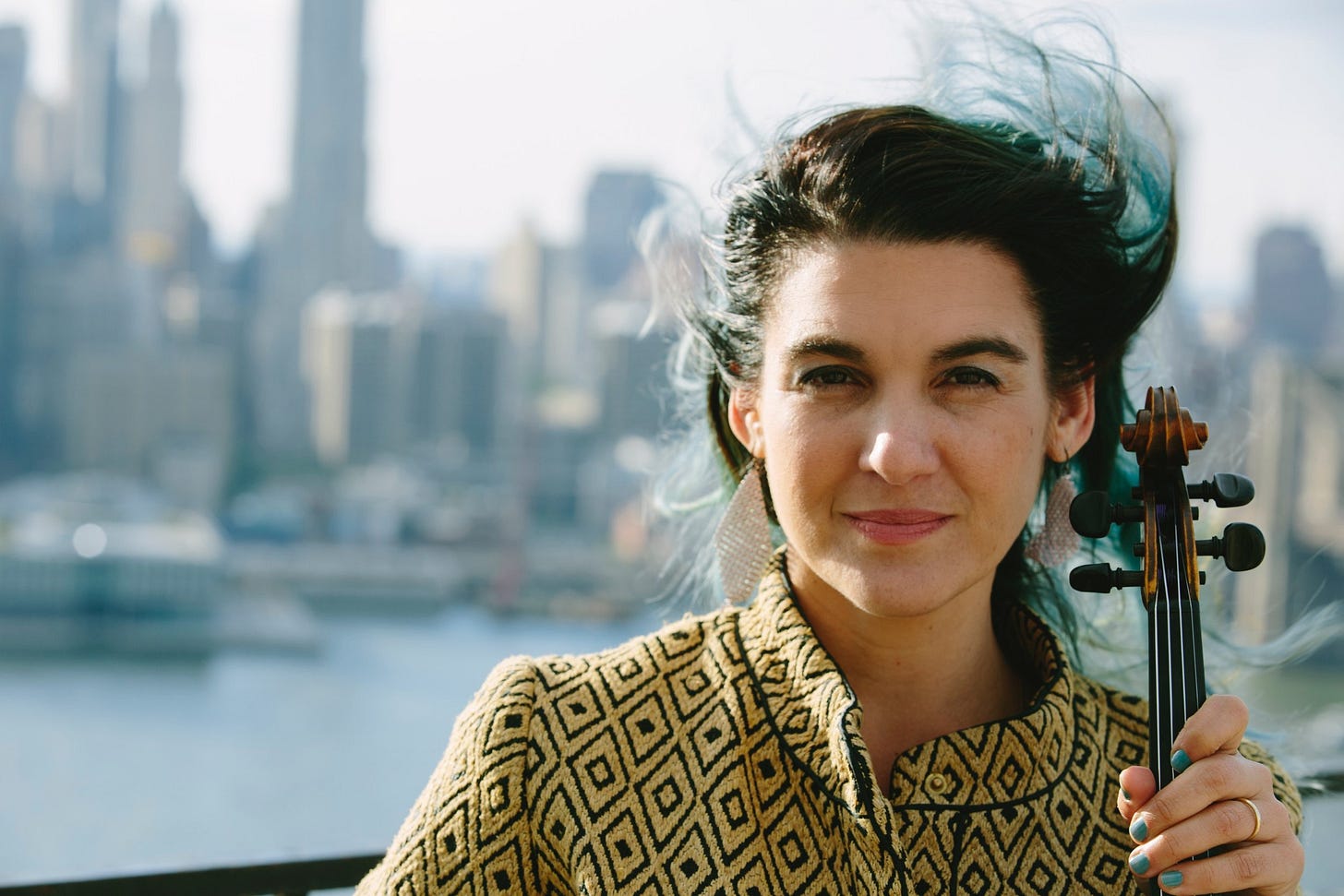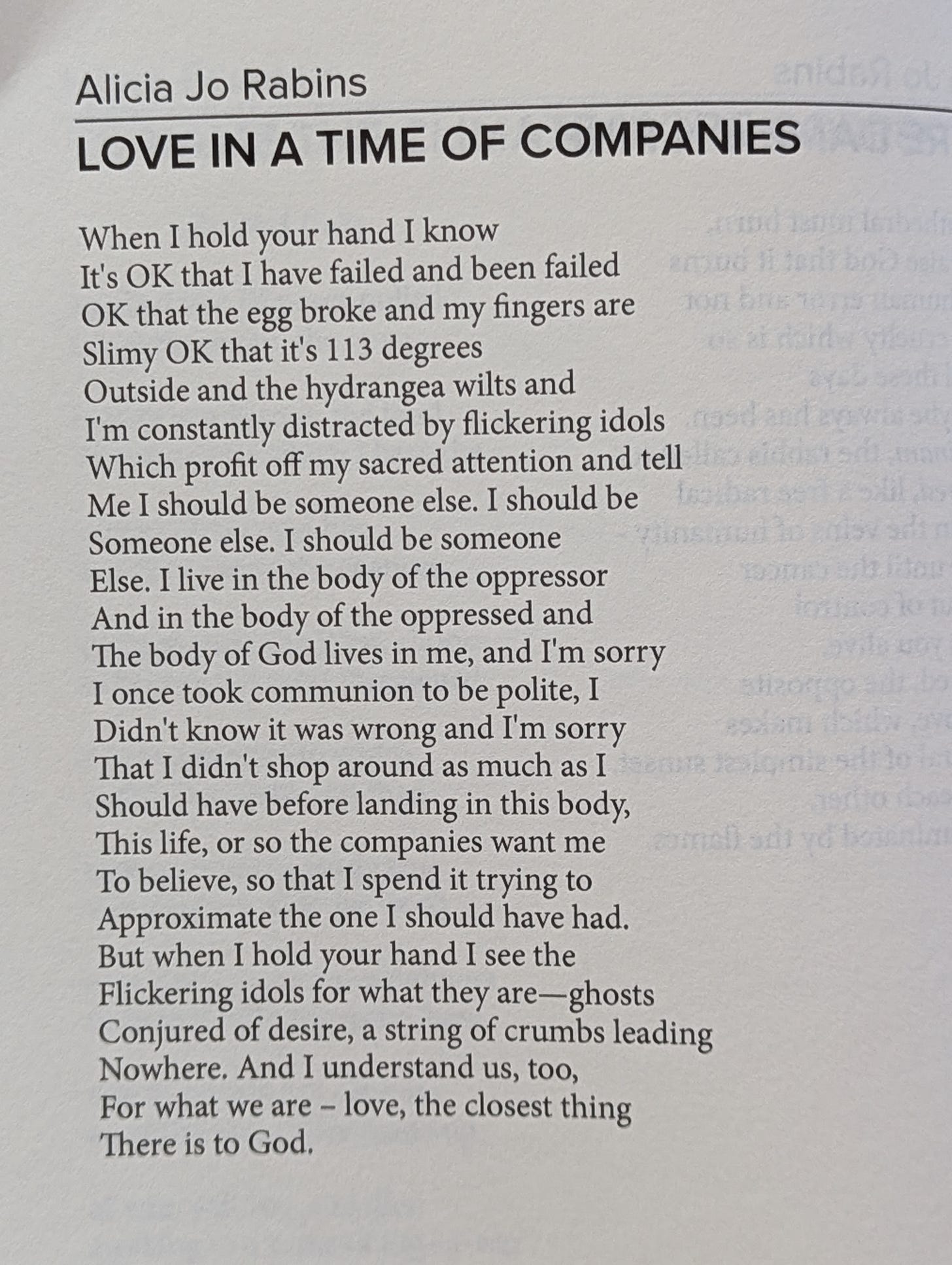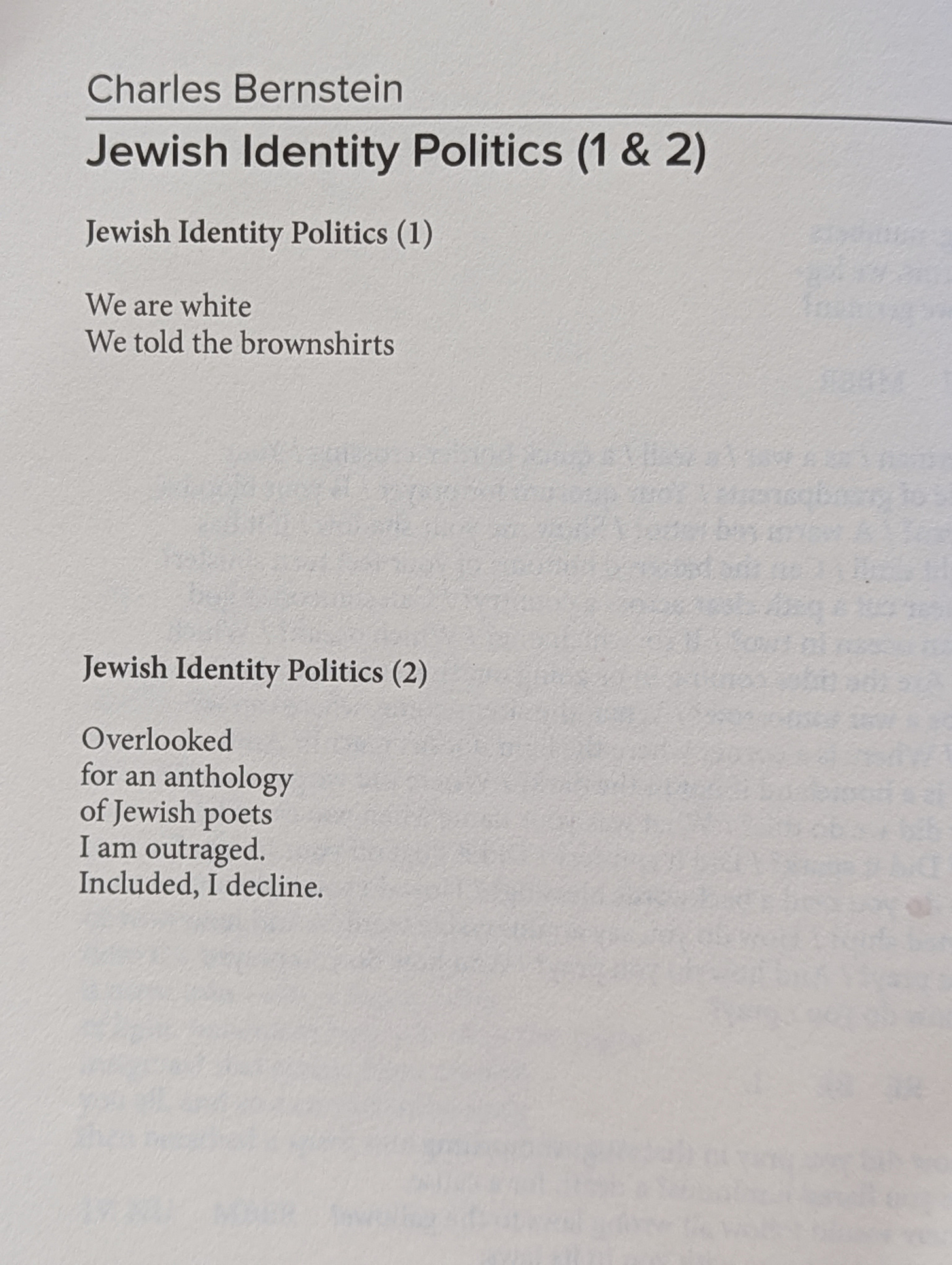A New Anthology of Jewish Poetry
A taste from a wide-ranging selection, from Alicia Jo Rabins to Charles Bernstein.
I started reading Breaking the Glass: A Contemporary Jewish Poetry Anthology while waiting for a ricotta cheesecake to bake. In that first hour, on Shavuot, I found myself doing the usual thing with an anthology—checking to see who was in it and who was not.
By the time the cake was done—I love ricotta cheesecake with orange zest, and this one was delicious hot, and then more delicious cold, with fresh berries—I realized that the best part of this anthology was what I was not expecting. I had discovered several poets I had never heard of before, and I had also discovered unexpected sides of poets I did know.
I decided that I would do two newsletter posts sometime after the holiday: one on poets I knew of who were featured in the anthology, and one on poets who are new to me. I like to savor poems individually, and I hope you do too.
“This anthology gathers an argument for a contemporary Jewish poetry renaissance,” editor Daniel Biegelson writes in his intriguing editor’s note. “It does not speak to define what it means to be Jewish or what it means for a poem to be Jewish. Instead, every poem here offers up and answers that question for itself.”
I love the idea of poems as questions, and perhaps, answers.
Alicia Jo Rabins
I have long been a huge fan of Alicia Jo Rabins, and I was very happy to see a poem of hers that mentioned an egg that broke. I had just managed to drop an egg on the floor, and so “Love in the Time of Companies” felt like it was speaking to me, directly.
Alicia Jo Rabins, poet, musician, nonfiction writer, and filmmaker,
Alicia’s beautiful first collection of poetry, Divinity School, won the APR/ Honickman Prize. Her second collection, Fruit Geode, was a finalist for the National Jewish Book Award. She is also the author of Even God Had Bad Parenting Days, a collection of short personal essays about Jewish spirituality and early parenthood.
As a musician and performer, Rabins is the creator of Girls in Trouble, an indie folk song cycle about the complicated lives of Biblical women, and A Kaddish for Bernie Madoff, an independent feature film about mysticism and finance.
I can hear all the elements of her writer’s biography in this poem.
What can I say? I love how this poem combines an accident of an egg breaking, with holding a person’s hand, and love, and God. Alicia’s poems tend to lend themselves to rereading, so I can promise that rereading this poem will make you see parts of it you did not see the first time, or the first few times.
And perhaps I should add that I sometimes think that Jewish poetry is also the closest some of us can get to God, or to the truth.
Charles Bernstein
Back in the realm of mere humans, I am always hearing from writers who are upset that they were excluded from this or that. And I admit that when I looked at the table of contents for this anthology, there were many writers that I thought should have been included but somehow weren’t. I didn’t know if they had not been asked, or had refused, or what. But I was soon charmed, shocked, and moved by Bernstein’s smart poems about the whole question of anthologies, and inclusion, Judaism, and identity. These two short poems—or perhaps, two parts of one poem— are also about the truth.
Poet and essayist Charles Bernstein.
Bernstein’s most recent books are Topsy-Turvy (2021) and Pitch of Poetry (2016), both from The University of Chicago Press. He is the winner of the 2019 Bollingen Prize for lifetime achievement in poetry and is a fellow of the American Academy of Arts & Sciences.
Bernstein’s poem addresses the awfulness of our current situation head-on. Jews are struggling to come to terms with new versions of old hatreds, or, perhaps, the sad realization that the “brownshirts” never went away. There is plenty to say about Jews and the concept of Jews being or not being white, and I expect multiple new books delving into this subject soon; but here, in just a few spare lines, Bernstein captures the layers of unease many Jewish writers feel with being labeled Jewish, as well as the disgust some Jews—writers and nonwriters alike—feel with identity politics of many forms.
It’s a brave poem, or two brave poems, depending on how you read. To comment, click the button below or just scroll to the end of this post.
More on This Anthology
Speaking of inclusion, I should share in the spirit of full disclosure that I have a few new poems in this anthology, all from what I hope will be a forthcoming collection inspired by the great medieval poet and commentator, Rabbi Avraham Ibn Ezra.
I got a lot out of spending time with this anthology, published by The Laurel Review at Northwest Missouri State University. I think I was probably the last contributor to get a copy, and for months I saw enticing posts about it on social media, but nothing prepared me for the range of poems included. In the end, it was a surprise, and the editor, Daniel Biegelson, deserves praise and credit for casting a very wide net.
I encourage you to buy a copy of Breaking the Glass—it’s ten dollars and well worth it. For 236 pages of Jewish poetry, in print form, it’s actually a wonderful deal. And if you have any interest in Jewish poetry, it will give you plenty of ideas on who to read next, and it will also give you a sense of the tremendous diversity of contemporary Jewish poetry in English. You can order a copy here: https://thelaurelreview.submittable.com/submit/99890/subscriptions-orders
Alicia Jo Rabins, seated, and me, standing, at our joint reading and book party in Chicago a few years back. (It was, perhaps, the original salon!) Alicia read from Fruit Geode, and I read from Eve and All the Wrong Men.
Upcoming Events
I am preparing to head to the Yetzirah Jewish Poetry Conference in Asheville, NC, as a fellow, and I will be giving a reading on July 2nd and doing a brief presentation introducing a Jewish poet on July 3rd. (Both will be streamed online and recorded. You can register for free here: https://yetzirahpoets.org/2024-public-events/ )
After that, I will head to Jerusalem for the Rohr Institute conference on Jewish literature, where fiction and nonfiction writers will gather. Next, I am planning an in-person newsletter salon in a Tel Aviv coffee shop in mid-July. (Please send a note if you will be nearby and want to join!)
Hope to see you in-person or online soon, and as always, thank you for reading—and commenting.
***********************************************************************************************************
Hope you enjoyed this newsletter! Thank you for your support of writing with depth.











I enjoyed reading this and have now ordered the anthology.
Love the Bernstein poems. Simple and full at the same time.